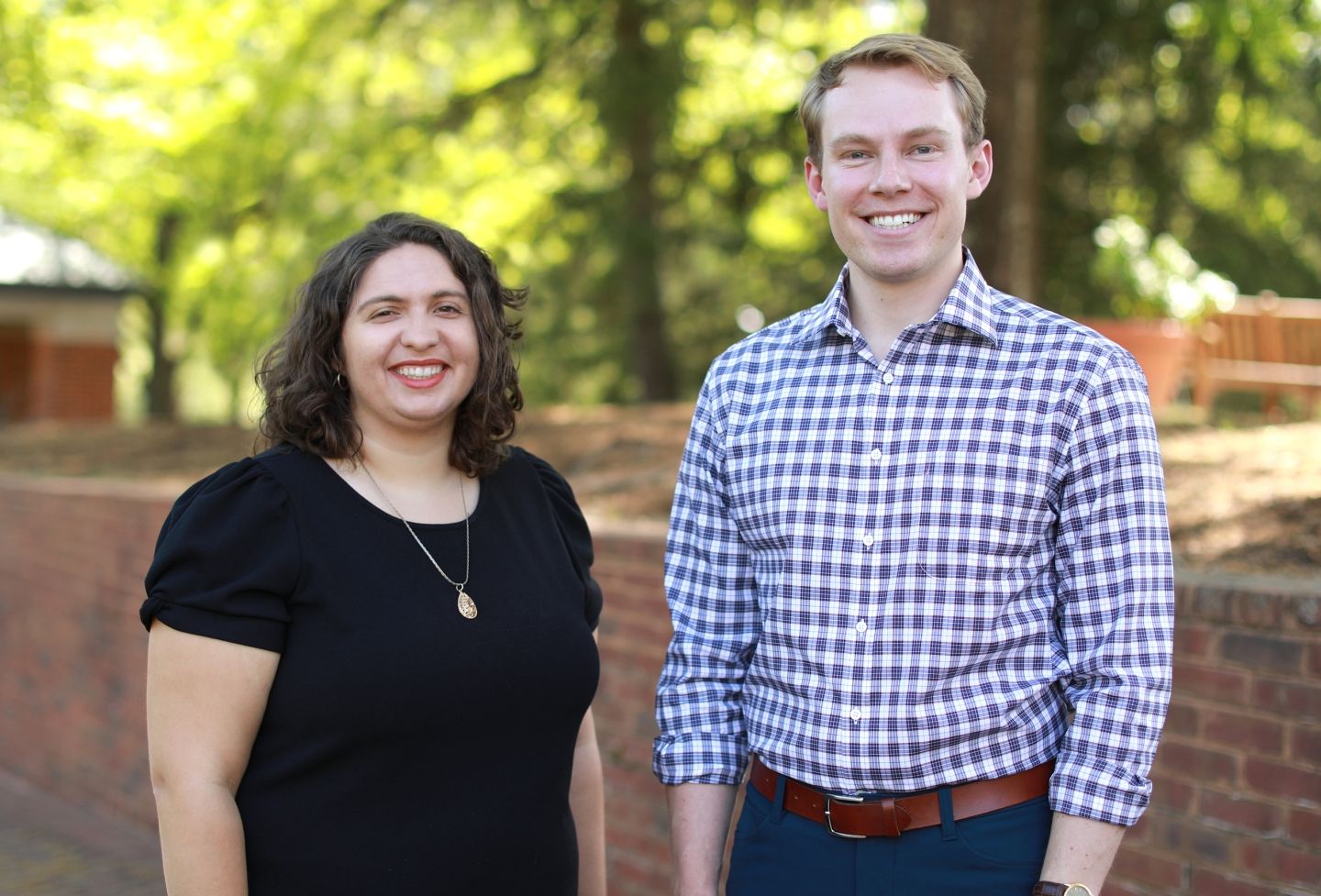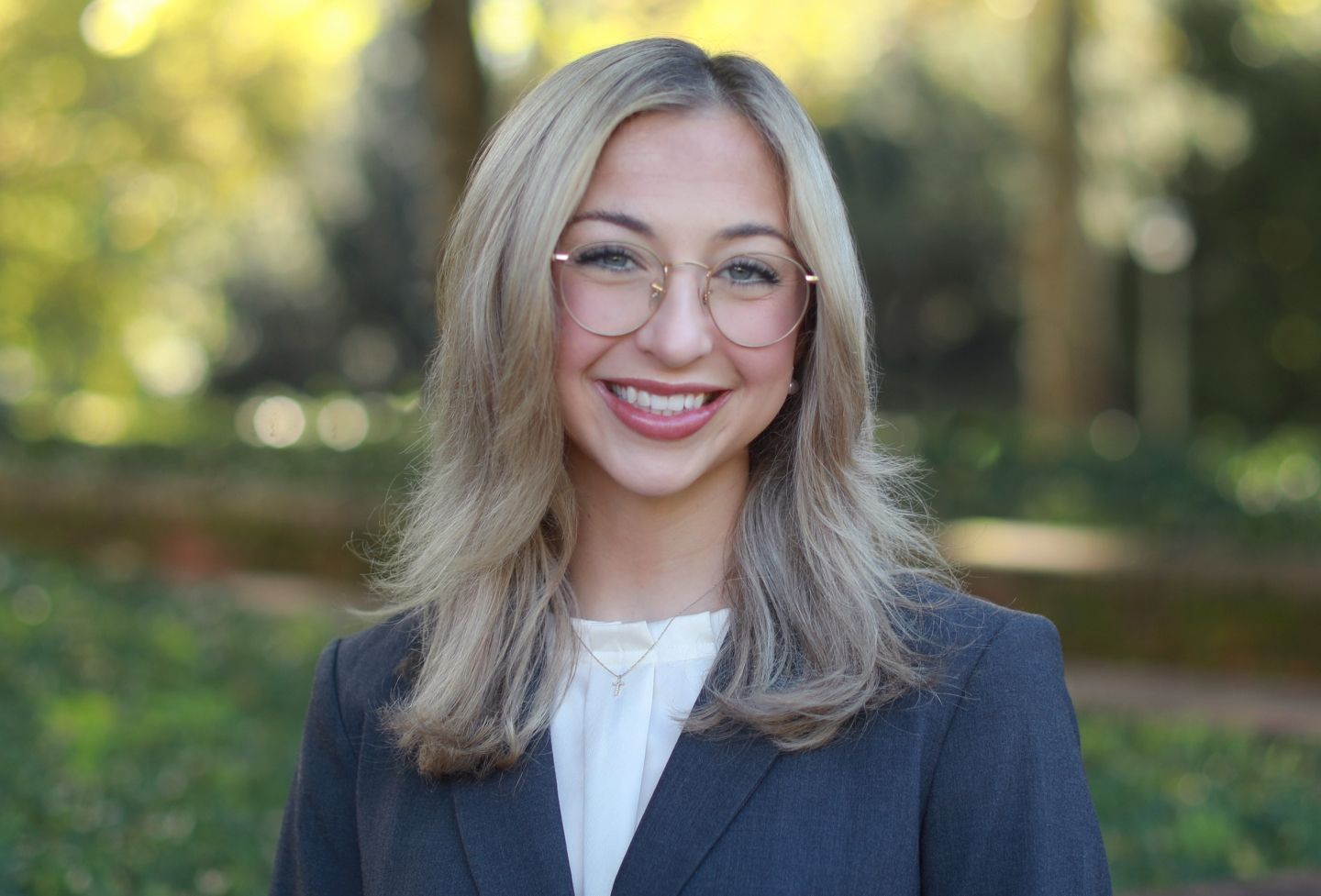It's not every day a law student gets to prosecute a felony jury trial. Last week Wade Gelbert, a rising third-year law student at the University of Virginia, tried and won a conviction against a Culpeper, Va., man charged with possession of a firearm after being convicted of a violent felony — a crime that carries a mandatory five-year minimum sentence.
Gelbert, who is interning this summer at the Culpeper County Commonwealth's Attorney's Office, was offered the rare opportunity to serve as the lead prosecutor in the felony jury trial and readily accepted.
"I came to this office because they seemed like they'd be willing to give me cases like this," Gelbert said. "To have this opportunity so early in the summer and to have this experience has been just fantastic."
In the case, Clinton Gerald Cubbage Jr. was arrested after Culpeper Police Detective Richard Brooking saw that Cubbage had sold two 12-gauge shotguns to a Culpeper pawn shop. Cubbage had previous felony convictions, including one for breaking and entering, as well as misdemeanor convictions of assault and battery and unauthorized use of a vehicle.
"It was a pretty strong case for the Commonwealth," Gelbert said.
Gelbert was permitted to handle the case under a third-year practice certificate issued by the Virginia State Bar. Many UVA Law students are able to try cases through the certificate program, though trying a felony jury trial is unusual.
On the day of the trial, Culpeper's Acting Commonwealth's Attorney Paul Walther introduced Gelbert to the court before the presiding retired Judge Jay T. Swett, who had a heavy load of several criminal and civil cases to hear.
"When [the judge] heard that we're going to have a third-year intern do the jury trial, he kind of made a sour face, though not intentionally," Walther said. "But at the end of the day he was very complimentary. And the next day when I went back to court, he told me that [Gelbert] did a very good job."
In his 20 years in the Culpeper prosecutor's office, Walther added, he has seen few interns as eager as Gelbert.
"A lot of times we'll get interns and they're a little bit tentative," he said. "They don't want to get their feet wet. Wade didn't hesitate in the least. He jumped right in and did an excellent job."
Last summer, Gelbert interned in the Albemarle County Commonwealth's Attorney's Office. In the fall, he will participate in the Law School's yearlong Prosecution Clinic, which places law students in commonwealth's attorneys' offices in Charlottesville, Albemarle County and 16 other jurisdictions, as well as the Charlottesville office of the U.S. Attorney for the Western District of Virginia and the Richmond office of the U.S. Attorney for the Eastern District.
"I came to the Law School with the intention of becoming a prosecutor," he said. "I went to undergrad at Virginia Tech and I was a freshman when the April 16, 2007, shootings happened. I was on campus that day. I saw firsthand what a criminal act can do to a community and the impact that a criminal act can have on victims — That drove me to want to become a prosecutor."
Gelbert has sought to gain as much experience with prosecuting cases as possible during his time in law school.
"The best way to learn how to be a prosecutor is to be a prosecutor," he said. "You can only do so many mock trials before you get a feel for it. To do the real thing, and to have the experience this early on is just really great."
Last week's felony trial is just one of several cases Gelbert has tackled. On his first day at the Culpeper Commonwealth's Attorney's Office, for example, he was handed an attempted rape case, also a felony charge.
"That case ended in a guilty plea, but I had done all the prep work and that day it was going to trial," he said.
Annie Kim, the Law School's assistant dean for public service and director of the Mortimer Caplin Public Service Center, said Gelbert's handling of a felony jury trial is exceptionally noteworthy, as well as an "amazing opportunity to learn firsthand all the principles of trial advocacy, evidence and criminal law."
"It's almost unheard of for a 2L student to first-chair a felony jury trial, let alone win one," she said. "Prosecution interns get into court frequently during their second-year summer, but they're mostly arguing motions and bond hearings or putting on misdemeanor bench trials — not trying a felony to a jury."
In preparing to prosecute his first felony trial, Gelbert interviewed witnesses, visited the pawn shop, spoke with police, read through documents and quizzed attorneys to make sure he understood the local procedure and practice rules.
During the trial, he said, he found his biggest challenge was thinking on his feet during cross-examination of the defendant and during his closing argument.
"You can anticipate as much as you want about what the evidence will be, but once people start testifying from the stand there's always something that can catch you off guard and you have to adjust mid-stream," he said. "I'm working on refining those skills now. You can only learn it by doing it. I'm happy with my experience so far and I'm looking forward to getting more. Next day, on to the next case."
Founded in 1819, the University of Virginia School of Law is the second-oldest continuously operating law school in the nation. Consistently ranked among the top law schools, Virginia is a world-renowned training ground for distinguished lawyers and public servants, instilling in them a commitment to leadership, integrity and community service.


